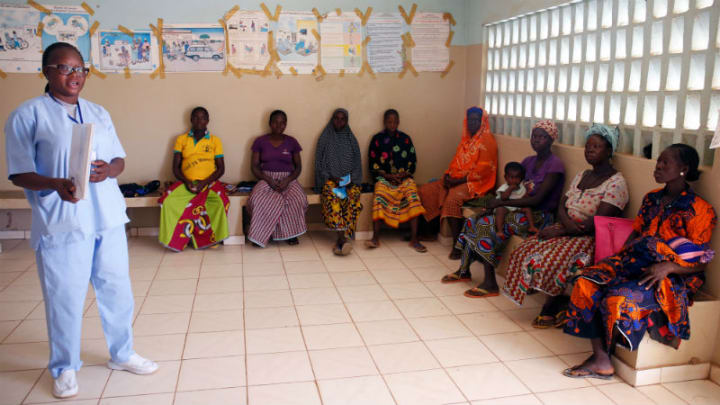Women’s health and reproductive rights are critical issues that impact the physical, emotional, and economic well-being of women around the world. From access to reproductive healthcare to maternal health and family planning, women’s health and reproductive rights are central to promoting gender equality and empowering women to make informed decisions about their bodies and their lives.
Access to Reproductive Healthcare
Access to reproductive healthcare is essential for women’s health and well-being. This includes access to contraception, prenatal and obstetric care, and safe abortion services.
Unfortunately, many women around the world face barriers to accessing these services, including limited access to healthcare providers, cost, and cultural or legal restrictions. Improving access to reproductive healthcare is a critical step towards improving women’s health and reducing maternal mortality.

Maternal Health
Maternal health is a critical issue that impacts the well-being of women and their families. Every year, hundreds of thousands of women die from preventable causes related to pregnancy and childbirth.
To reduce maternal mortality and improve maternal health, it is important to address the root causes of maternal morbidity and mortality, including lack of access to maternal healthcare services, poverty, and gender-based violence.
Family Planning
Family planning is a critical component of women’s reproductive health and well-being. By providing women with access to contraception and other family planning services, they can make informed decisions about their reproductive health and plan for their families.
Family planning is also critical for reducing maternal mortality, as it allows women to space their pregnancies and reduce the risk of complications during pregnancy and childbirth.
Reproductive Rights and Gender Equality
Reproductive rights and gender equality are closely linked, as women’s ability to make informed decisions about their reproductive health and bodies is central to achieving gender equality.
This includes access to reproductive healthcare services, the right to safe and legal abortion, and the right to make decisions about one’s own body. Protecting and promoting reproductive rights is essential for advancing gender equality and empowering women to make informed decisions about their health and well-being.
The Impact of Reproductive Health on Women’s Economic Empowerment
Reproductive health is also closely tied to women’s economic empowerment. By providing women with access to family planning and maternal healthcare services, they can make informed decisions about their reproductive health and plan for their families. This, in turn, can improve their economic prospects and increase their financial independence.
The Need for Investment in Women’s Reproductive Health
Despite the critical importance of women’s reproductive health and rights, investment in these areas remains insufficient. This includes funding for research, development, and implementation of reproductive healthcare services, as well as programs to address the root causes of maternal mortality and improve maternal health.
Investing in women’s reproductive health is essential for improving the health and well-being of women and their families, and for promoting gender equality.
The Role of Healthcare Providers in Women’s Reproductive Health
Healthcare providers play a critical role in promoting women’s reproductive health and well-being. This includes providing comprehensive reproductive healthcare services, such as access to contraception, prenatal and obstetric care, and safe abortion services.
Healthcare providers can also serve as advocates for women’s reproductive rights, providing education and support to women as they make informed decisions about their health.
Addressing Barriers to Reproductive Healthcare
Despite the critical importance of reproductive healthcare, many women around the world face barriers to accessing these services.
These barriers include lack of access to healthcare providers, cost, cultural or legal restrictions, and stigma. To improve women’s access to reproductive healthcare, it is important to address these barriers and provide women with the resources and support they need to make informed decisions about their health.
The Importance of Sex Education
Sex education is a critical component of reproductive health and well-being. By providing young people with comprehensive, accurate information about their bodies and sexual health, they can make informed decisions about their reproductive health and reduce their risk of unintended pregnancy and sexually transmitted infections (STIs).
Providing young people with access to sex education is essential for improving their health and well-being, and for promoting gender equality.
The Future of Women’s Reproductive Health and Rights
The future of women’s reproductive health and rights will require a comprehensive and holistic approach that addresses the complex health needs of women and their families.
This will require increased investment in reproductive healthcare services and programs, as well as a commitment to addressing the root causes of maternal mortality and improving maternal health.
The future of women’s reproductive health and rights will also require a commitment to protecting and promoting reproductive rights, and to empowering women to make informed decisions about their health and their lives.
Conclusion:
Women’s health and reproductive rights are critical issues that impact the physical, emotional, and economic well-being of women around the world. Improving access to reproductive healthcare, reducing maternal mortality, and protecting reproductive rights are all essential steps towards promoting gender equality and empowering women to make informed decisions about their health and their lives.
The future of women’s health and reproductive rights will require increased investment, a comprehensive approach, and a commitment to promoting gender equality and improving the health and well-being of women and their families.
Women’s health and reproductive rights are critical issues that impact the physical, emotional, and economic well-being of women around the world.
Improving access to reproductive healthcare, reducing maternal mortality, and protecting reproductive rights are all essential steps towards promoting gender equality and empowering women to make informed decisions about their health and their lives.
The future of women’s health and reproductive rights will require increased investment and a comprehensive approach that addresses the complex health needs of women and their families.